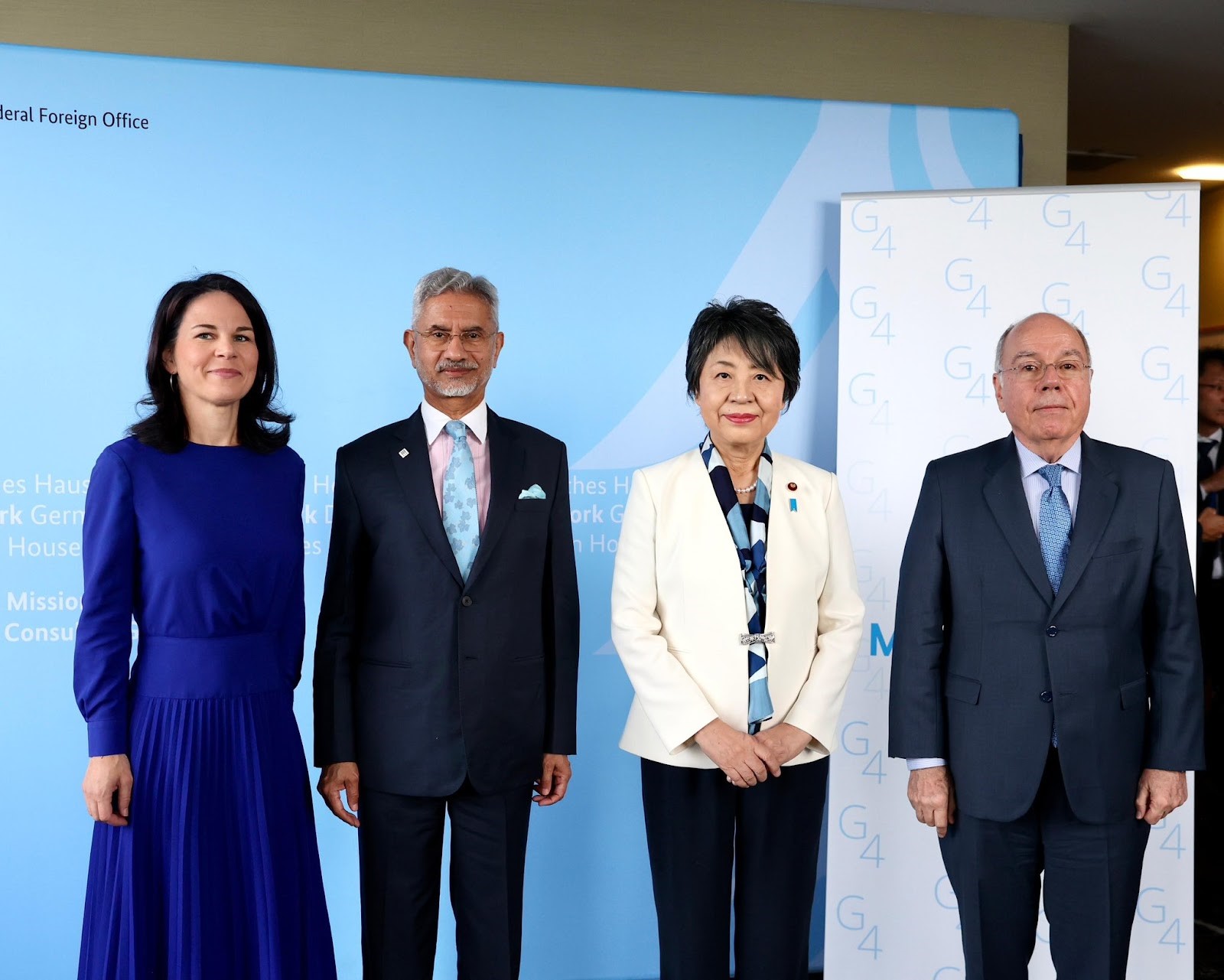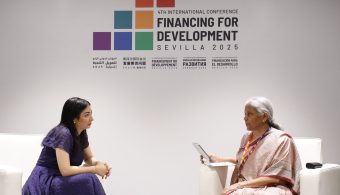Picture Credit: x.com/DrSJaishankar
Foreign Ministers from the G4 nations—India, Germany, Brazil, and Japan—renewed their call for comprehensive reforms to the United Nations Security Council (UNSC) during a meeting held on the sidelines of the 79th United Nations General Assembly (UNGA) in New York.
The Ministers stressed that the Security Council must be updated to reflect contemporary geopolitical realities in order to remain effective in addressing present and future global challenges.
Reforming the UN to Reflect Geopolitical Realities
India’s External Affairs Minister S. Jaishankar, Germany’s Foreign Minister Annalena Baerbock, Brazil’s Mauro Vieira, and Japan’s Yoko Kamikawa convened to assess the state of multilateral governance. They emphasized the need for reforms to the Security Council, which they consider an essential part of adapting the United Nations to today’s global landscape.
In a joint statement released by India’s Ministry of External Affairs (MEA), the G4 Ministers stressed that “a comprehensive reform of the Security Council is an essential part of any endeavor to make the United Nations better reflect contemporary geopolitical realities and thus fit for the present and future.”
They welcomed the upcoming “Summit of the Future,” where world leaders called for urgent Security Council reforms.
India and Germany Back Brazil’s Call for Global Governance Reform
During the meeting, the Ministers of Germany, India, and Japan supported Brazil’s leadership in launching a “Call to Action on Global Governance Reform” during its G20 presidency. The G4 leaders reaffirmed that transforming global governance remains a top priority following the discussions at the “Summit of the Future.”
The joint statement further noted the importance of expanding both permanent and non-permanent membership categories of the UNSC. The Ministers highlighted that increasing the Council’s legitimacy and effectiveness can only be achieved through this expansion.
Increased Representation for Developing Nations
India and Germany, alongside their G4 counterparts, advocated for enhanced participation of developing countries, particularly those significantly contributing to international peace and security. They emphasized the need for fairer representation of under-represented regions such as Africa, Asia-Pacific, and Latin America and the Caribbean.
The Ministers reiterated their strong support for the Common African Position, based on the Ezulwini Consensus and Sirte Declaration. The G4 leaders also underlined the need for an improved representation model that recognizes the contributions of regions currently marginalized in international decision-making, pushing for a more inclusive and balanced UNSC structure.
Concerns Over Lack of Progress in Negotiations
Expressing frustration over the stagnation in the Intergovernmental Negotiations (IGN) on UNSC reforms, the G4 Ministers voiced their concerns about the lack of substantive progress. “The G4 Ministers voiced strong concern over the persistent absence of substantial progress in the IGN and underlined the urgent need to begin text-based negotiations,” according to the MEA statement.
The Ministers were encouraged by the recent increase in support for text-based negotiations and called for the IGN to follow the rules and procedures of the General Assembly, as laid out in the UN Charter. They looked forward to engaging in further discussions aimed at developing a consolidated reform model.
Looking Ahead to UN’s 80th Anniversary
With the 80th anniversary of the United Nations approaching in 2025, the G4 Ministers underscored the urgency of moving forward with Security Council reforms. They reiterated their commitment to advocating for these changes during the ongoing 79th UN General Assembly session and beyond.
In conclusion, the G4 Ministers reaffirmed their support for each other’s candidacies as potential new permanent members of a reformed Security Council, agreeing to continue discussions on current UNSC-related issues and work in good faith with other UN member states.



